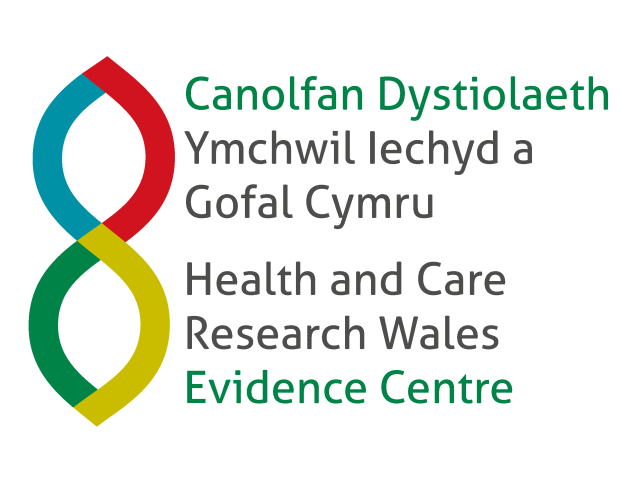In this blog, Dr Micaela Gal of the Health and Care Research Wales Evidence Centre takes a closer look at Social Care Wales' approach to knowledge mobilisation. She sets out how it compares to published evidence about knowledge mobilisation in social care settings.
Background
We know that sharing research evidence and getting it used in social care practice (where relevant) can be challenging. Giving people access to evidence, even when it’s been summarised and shared, doesn’t mean it will be used in the real world.
To help embed research into social care practice, Social Care Wales developed a Research and Development Strategy for Wales. They also have an evidence offer. Both can help social care providers, leaders, and designers use research evidence.
The evidence offer uses an approach called knowledge mobilisation.
Knowledge mobilisation methods help to make evidence more accessible, and to connect people. This helps them make sense of the evidence and apply it to their own settings.
Social Care Wales wanted to make sure that they had not missed any knowledge mobilisation methods that might be useful. So, they asked the Health and Care Research Wales Evidence Centre to look for, and describe, published evidence in this area.
The methods
Social Care Wales uses knowledge mobilisation methods including:
- exchange
- brokering
- co-creation
- dissemination.
These methods help people understand, use, gather and generate research.
The role of the Evidence Centre
The team searched for any published research evidence describing knowledge mobilisation methods used in social care settings.
Sometimes knowledge mobilisation is also called knowledge exchange or knowledge transfer, so the team included these terms in the evidence search. We looked for evidence up to May 2024.
The Evidence Centre search
We found five relevant studies that included findings from a number of countries. The social care settings described included child welfare and protection, dementia care, substance abuse and addiction treatment, child and family care, mental and physical disability care, care for older people, social assistance/income support, and violence prevention.
The knowledge mobilisation methods described in the studies included:
- using digital and multimedia resources
- holding knowledge exchange seminars and gatherings
- having comprehensive knowledge transfer strategies
- using educational resources
- using web-based portals
- providing direct practitioner support
- using research summaries.
These methods aligned with the areas included in the Social Care Wales model for knowledge mobilisation.
We came to the conclusion that more research is needed to understand what the most effective knowledge mobilisation methods are in the relevant social care settings. Also, that planning and evaluation should be included as part of any knowledge mobilisation method and improvement intervention.

Social Care Wales asked us to look for, and describe, published evidence on knowledge mobilisation methods
The published evidence
We’ve explored how the published evidence compares to the Social Care Wales framework for knowledge mobilisation.
1. Using knowledge platforms to disseminate evidence-based practices
This can facilitate greater accessibility and transparency of information for professionals, decision-makers, and the public. This aligns with the dissemination area of the framework.
2. Promoting interdisciplinary collaboration
This means researchers, practitioners, service users, and policymakers, working together to help innovation, enhance the relevance of research findings to practice, and support knowledge mobilisation strategies. This aligns with the brokering area of the framework.
3. Adopting diverse knowledge mobilisation strategies
This includes things like digital resources and knowledge exchange seminars. Using these strategies can make sure that interventions are tailored to the specific needs and contexts of different social care settings. This aligns with the exchange and co-creation areas of the framework.
4. Ongoing professional development and capacity building for practitioners
This helps enhance skills in accessing, interpreting, and applying research evidence in practice, and also to support evidence-informed decision-making. This aligns with both exchange and capability and skills-building areas of the framework.
5. Implementing robust evaluation to assess the impact of knowledge mobilisation interventions over time
Feedback between researchers and practitioners can inform improvements to strategies and enhance their effectiveness in real-world settings. This is not explicitly captured within the areas of the framework and could be considered as an additional area.
Find out more
The Evidence Centre has produced and infographic to help explain this work: A rapid review of knowledge mobilisation in social care settings.
You can find out more about the project and access the full report too.
Learn more about the Social Care Wales knowledge mobilisation team: Apply knowledge to practice.


